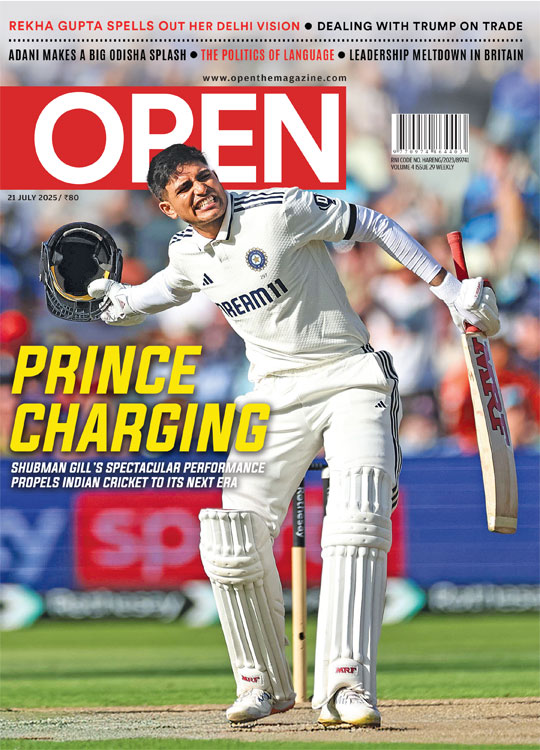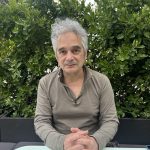The Learning Curve
Can BHU be redeemed as the university turns 100?
/wp-content/uploads/2016/01/20430.bhu1_.jpg)
An apocryphal story goes that an enthusiastic Palestinian student who came to study Hindu Philosophy at Banaras Hindu University (BHU) returned home a few months later because he was convinced he had greater access to Hindu scriptures and literature in libraries in the Middle East than the place he once considered the ‘Mecca of Hindu learning’. A BHU professor, who was full of hope when Narendra Modi became Prime Minister and narrated this ‘story’ to me, attributes what he calls the “disappointing scenario of a great institution” to “excessive red tape and routine” that has rendered the running of various departments at BHU, which turns 100 on 4 February 2016, entirely “stagnant”.
Professor Bhola N Dwivedi, a professor of physics at IIT (BHU)—a highly accomplished, well-travelled scholar who has published numerous papers in peer-reviewed journals and science magazines worldwide—notes with a touch of irony, “Bricks and walls don’t make an institution.” For someone who has written extensively about the values that BHU founder Madan Mohan Malaviya stood for, he should know. The gorgeous buildings that line the sprawling campus at Varanasi, considered the holiest of holy cities for Hindus, were meant to exude an aura that Western universities were known for. “The upkeep is not up to the mark,” says Visual Arts Professor Suresh K Nair, who contends that gardeners are the ones who retain that ambience of the Hindu university that Malaviya envisioned as a ‘temple of learning’. Mahamana, as Malaviya is referred to in this part of the country, wanted Frank Lishman, the architect who designed the building, to keep that in mind—that the buildings should resemble massive Hindu temples. But then he also had in mind a global curriculum that would attract students from across the world. It is therefore no coincidence that the texts for religious classes were co-written by an Anglo-Irish woman, Annie Besant, and Bhagwan Das, an Indian scholar, to enable what writer Leah Renold, called the ‘remarkable confluence’ of British and Indian ideas at a time when the British Empire was at its peak and Indian nationalism in its early stages of becoming a mass movement. The overriding task of Malaviya was not only to merge Western education and Hindu religious traditions, but also to have the best of faculty on a campus set in the oldest living city, points out Dwivedi, who returned to BHU from the US on his father’s advice in the early 1980s. “My intention then was to help make BHU into an international centre of excellence in academics,” he says, rather ruefully.
Several professors like Dwivedi and senior university officials that Open spoke to concede that BHU’s standing as an institution of excellence has been eroded, thanks to a slide in the quality of its faculty across departments. Of course, several efforts are on to revive its glory and make it a global knowledge hub. Many professors and students alike, however, see such measures as “merely cosmetic”. One such was last week’s creation of two new institutes: the Institute of Science and the Institute of Management Studies. The notification to this effect was issued on 16 December 2015 by the President of India in his capacity as Visitor of BHU, which already had three institutes: the Institute of Medical Sciences, Institute of Agricultural Sciences and Institute of Environment and Sustainable Development.
A senior professor at the Political Science department calls this an “incremental step” that doesn’t address the scourge: nepotism. Professor AK Agrawal, professor at the department of Computer Science at IIT-BHU, an alumnus of IIT Kanpur and Stony Brook University, refers to the phenomenon that has contributed to “downs” in BHU as academic inbreeding, marked by professors either managing to get their students or members of their family in as faculty members. Several other professors and students—some of whom ask not to be identified—claim that such “inbreeding” is rampant in BHU. “That has reached incomprehensible levels,” says one of them. Senior officials also admit that “this menace of nepotism” has to be addressed immediately.
Professor AP Pandey, professor and head of the Economics department, contends that the problems are manifold, and that nepotism is only one of the major concerns. Pandey—speaking to this correspondent in the presence of at least seven of his department colleagues who also contributed to my understanding of the issues—points out that there is a lack of communication between the vice-chancellor’s office and various departments like his. For instance, only a handful of science departments were consulted over the ambitious Ganga clean-up plan of Modi, who represents the Varanasi Lok Sabha constituency. “We are not yet aware of any move to hardsell BHU as a global university,” many of them disclose. What is more regrettable, says an Economics professor, is that the department was not enlisted to study the impact of the Ganga clean-up plan on local economies. “These are the avenues [by which] the Centre can gain a lot from academic institutions and experts like us; yet they are not doing it,” adds another member of the Economics faculty. Earlier this year, the Union Government had approved Rs 20,000 crore to be spent over the next five years for the Clean Ganga programme. Later, it also invited the participation of private-sector companies to help municipal and civic agencies with urban-sewage management, one of the most crucial areas of the river-cleaning exercise. The Government wants companies to adopt the nearly 118 towns and cities on the river’s banks and fix their sewage management systems. However, not much headway has been made on this front.
“BHU is an institution that ought to have contributed a lot to this programme. If departments like ours are not made part of it, how can you expect our rulers to fix problems within the university? Encouraging academics within BHU to help in such a social mission is one of the steps to clean up the rot in the university,” argues another Economics professor. Many of them fear that without local participation—and the support of academics familiar with local economies—the fate of the programme will go the way of the Ganga Action Plan of 1985, which after 30 years and spending Rs 4,000 crore has failed to reduce the river’s pollution levels.
Local help is imperative. However, what haunts BHU, according to a Political Science professor, is “injudicious localisation”. She is referring to the “prevalent” habit among members of a particular caste who have hegemony on the campus to recruit en bloc faculty members of that particular caste. “Not only that, there is a concerted campaign to have people from this part of Uttar Pradesh as faculty members. There is also a tug of war between various caste groups, especially Brahmins and powerful Kshatriyas, to get people from their communities to the university at various levels of employment,” says this professor who, ironically, belongs to one such community. “I detest this practice because I got to this position on merit, but I see several undeserving candidates becoming lecturers and professors,” she avers.
A professor at the Arts department agrees. “At various stages, various communities have held sway. It is like a cycle in which a handful of powerful communities share power within BHU,” he says, emphasising that he has first-hand experience. “Officials and faculty members delay letters of admission to students from various other states. This is done meticulously and sometimes as if by force of habit, to ensure that there [are more locals] among the students.” While Open couldn’t independently verify these claims, talk of caste groups such as Shuklas, Dwivedis, Pandeys, Bhargavas, Rajputs and others maintaining a strong presence in BHU is widespread on the campus, especially among OBC professors and students who allege that they face discrimination. Officials deny such charges.
The upshot is a loss of national character—something that BHU’s founder and key philanthropists such as the Maharaja of Darbhanga considered imperative to the university’s growth. Professor AK Agrawal finds losing the cosmopolitan ethos of the university a bad omen. “Unless we can get students from across the country, we can’t afford to remain a university that has a grand appeal,” says Rakesh Raman, a professor of Economics at BHU.
Distance has never been a concern for students even during the pre-freedom days. Students had flocked to BHU from locations as far as Kanyakumari and Srinagar to study at BHU. Several students from those days—the alumni of BHU include stellar achievers in various fields—recall undertaking a week-long train journey, changing several trains, to reach the university. “Which is why I don’t buy the argument that students from elsewhere don’t find BHU to be suitable location-wise. Modes of travel have improved and it is easier for students from any part of India to reach Varanasi much easier than earlier,” declares Professor Dwivedi.
Professor Raman and others proffer a location-disadvantage theory of another kind. They argue that Varanasi is a tier- 2 or 3 city and is not the first city of choice for prospective students, especially the brightest of the lot. “They prefer cities such as Delhi and Mumbai to others,” Raman says. He also argues that any foreign university that is looking for a collaboration or overseas education scheme finds itself a partner in a university in Delhi and elsewhere. “Varanasi ends up suffering on account of this disparity,” he insists. For a university with 145 departments that would “easily be as big as 20 JNUs”, BHU is not connected adequately with the outside world, losing out on grants and opportunities for the faculty as well as students, he says. Some other professors at the Economics department also blame the “Delhi-centric” HRD attitude. “They need to space out resources rather than concentrate all of them in Delhi, and help develop centres of excellence elsewhere,” says one of them.
While all this may have a grain of truth to it—that educational institutions in Delhi and Mumbai walk away with best collaborative schemes—several institutions in smaller cities like Kharagpur and Kanpur and in places like Pune that are far from the capital have been attracting some of the best students, faculty and overseas tie-ups. Social sciences professors argue that the arts stream stands to lose out more than the science departments because of this “distance factor”.
Dr Vishwanath Pandey is a cheerful man with a penchant for long and friendly conversations. He has been a public relations officer under several vice-chancellors, and was brought back from retirement to active service by the current vice-chancellor, Professor Girish Chandra Tripathi, an RSS man, despite opposition from right-wing elements within and outside BHU. Pandey has never been an admirer of “fascist forces” and therefore has not thought highly of BJP leaders or, for that matter, Narendra Modi. He had made public his political leanings much before Modi won a landslide in Varanasi. Which also explains why Tripathi was flooded with hundreds of WhatsApp messages when he brought Pandey back to assist him.
Pandey doesn’t deny the problems that afflict BHU, but he doesn’t name them either. The professors that Open spoke to dwelt at length about delays in funding, lack of inter-disciplinary studies, poor coordination with the outside world, academic inbreeding, corruption at high levels, poor public relations and so on as troubles that plague the university that sits on one of India’s most sprawling—and verdant—campuses.
Pandey says that BHU is a big brand that can easily be marketed well to attract more students. “Many improvements and amends are in order,” he concedes. He is proud that despite the “best efforts” of various politicians, the secular character of BHU is still intact. “We are also a great paymaster,” he says. He goes on to say that efforts should be on to lure the best teachers from far and wide, and cites the example of IIM-Bangalore, which has managed to do so under the leadership of former director Pankaj Chandra, whom Pandey regards as a friend. “Such measures are needed to take BHU on the next big course of development,” he says.
In an institution where founder Malaviya is venerated— and whose quotes are treated like gold dust—officials at BHU are past masters in resting on their laurels. “It is impossible to walk a metre without an official invoking Malaviya and Mahatma Gandhi without actually doing what they wanted the university authorities to do,” says a professor at the Political Science department where the walls are decaying from what Arts professor Nair calls “poor housekeeping”.
Meanwhile a senior BHU official who doesn’t wish to be named says that the academic inbreeding that is cited as a major reason for BHU’s “plethora of troubles” is a major indication of an all-pervasive vice: corruption. “Administration- level reforms are required to battle corruption. Our rusted administrative set-up has to be replaced to ensure a revival in BHU’s fortunes and appeal,” says Professor Agrawal, who regrets that he often hears it said that “those who don’t get anywhere else land up in BHU as faculty”. He agrees that such a statement may be an exaggeration, but it is not a wild one. As of now, 700 faculty posts in the reserved category are lying vacant because the authorities seem to be delaying recruitment, according to a professor in the Hindi department. Senior officials such as Pandey confirm this figure, adding that “we need to maintain the quality of the faculty”. He is of the view that BHU could “put things back on the rails” by hiring high- quality teachers with great reputations in their fields. “He may have such hopes. And we all do. But nothing seems to be happening. That is precisely the problem,” says a professor of Physics.
There are those who blame the all-powerful executive council of BHU for not having an ear to the ground. “They consist mostly of people who do not know much about the university and therefore are not interested in it,” says a senior official. The executive council comprises the vice-chancellor, who is an ex-officio member, and eight persons nominated by the President of India who hold office for a term of three years.
Students that Open spoke to contend that “the atmosphere” on the campus is “vicious” as the authorities don’t allow elections. “As regards development of the university, vice-chancellors and politicians only do lip-service,” says an Economics student, requesting anonymity. Dozens of students were arrested this year by the Varanasi Police and at least five hostels at BHU were vacated after violence broke out over the demand to hold students’ union elections. This student also claims that skirmishes between doctors and students at the medical college and the recently opened trauma centre are because of the “inefficiency of a director” who has appointed inexperienced hands—including nurses. “[The nurses] misbehave with students and are untrained to deal with emergency situations. It is pretty obvious that there is corruption in such hires,” he says. The director in question was unavailable for comment.
Professor Agrawal says that the authorities should work towards fulfilling the vision of the founder and Mahatma Gandhi who made his first public speech in India at the inauguration of BHU. Gandhi spoke from a dais that had bedecked and bejewelled princes seated alongside. He talked about an issue that still stands unresolved in Varanasi: “Is it right that the lanes of our sacred temple (Kashi Vishwanath) should be as dirty as they are? The houses round about are built anyhow. The lanes are tortuous and narrow. If even our temples are not models of roominess and cleanliness, what can our self-government be?”
Several other points raised by the likes of Malaviya and Gandhi 100 years ago remain unresolved even today, concur BHU professors. For his part, Professor CNR Rao, one of the university’s illustrious alumni, says that “BHU has to do much to improve the research infrastructure and the overall atmosphere for first-rate work. This requires outstanding young talent, less bureaucracy and modern facilities for research”.
Professor Rao remembers that in the early 1950s when he was a student there, BHU was one of the few universities carrying out research in most areas of science. “The atmosphere was good and one could see lights burning at midnight in the science laboratories,” he recalls.
Like him, another BHU alumnus, Nikesh Arora, president and COO of SoftBank Corp, who studied there more than three decades later, is no less nostalgic. He has fond memories of his life on the campus—how as a student he loved hanging out with friends in Raj and DG Corners (next to the Rajputana and Dhanrajgiri hostels) and at Mochu’s, a tea stall famous for its snacks.
As for BHU’s direction, current Vice-chancellor Tripathi has vowed to try getting collaborations with the world’s best universities, besides top scholars, to enrich the standard of research and quality of education. For BHU, going back to its roots would mean taking a positive step towards the future. Lofty words are fine, but actions speak louder.
About The Author
CURRENT ISSUE
MOst Popular
3

/wp-content/uploads/2025/07/Cover-Shubman-Gill-1.jpg)













More Columns
Trump’s Disruption of World Trade Krishnan Srinivasan
Author Thomas Suárez presents peace framework for the Palestine-Israel crisis Ullekh NP
Shubhanshu Shukla Returns to Earth Open